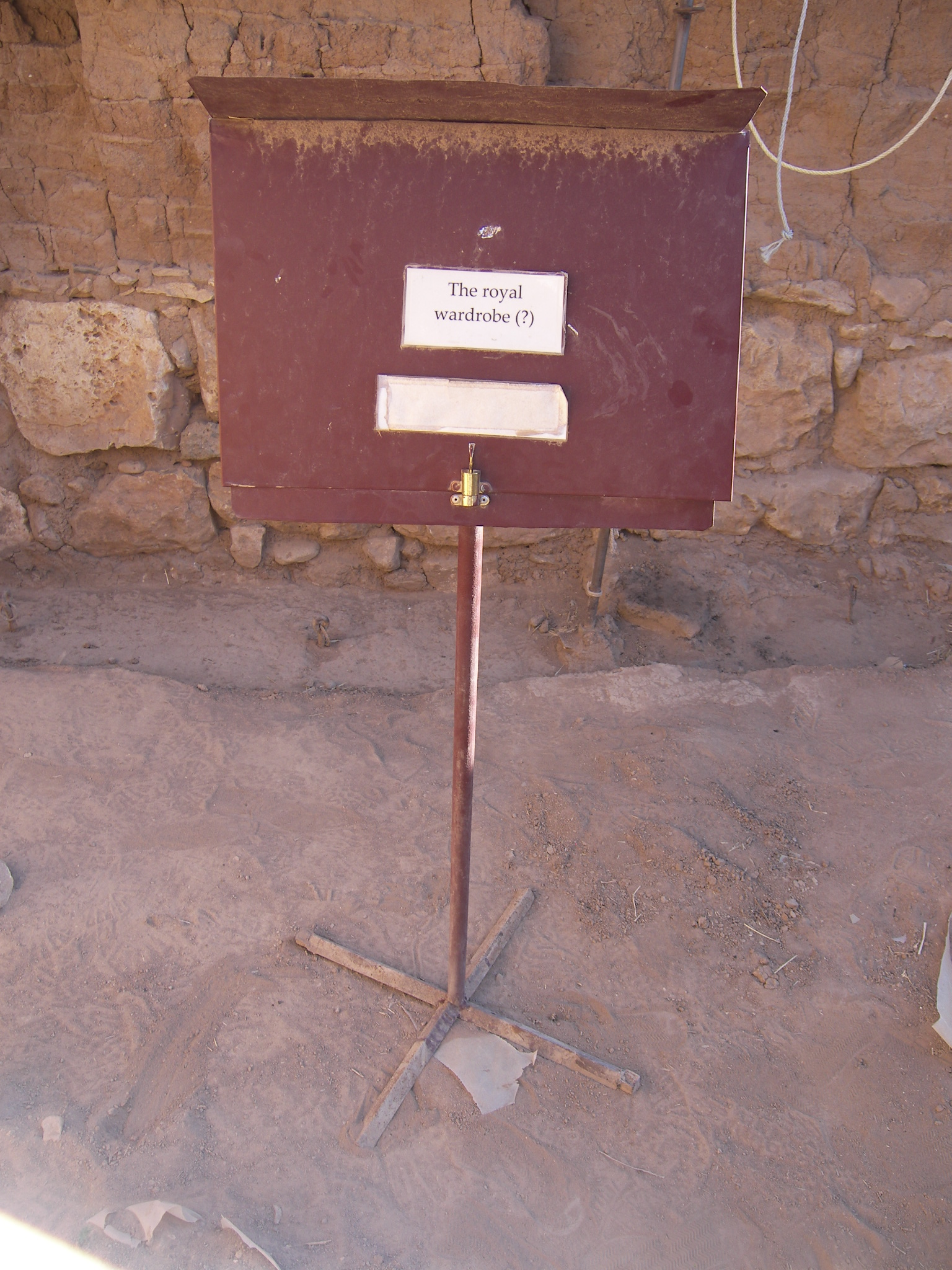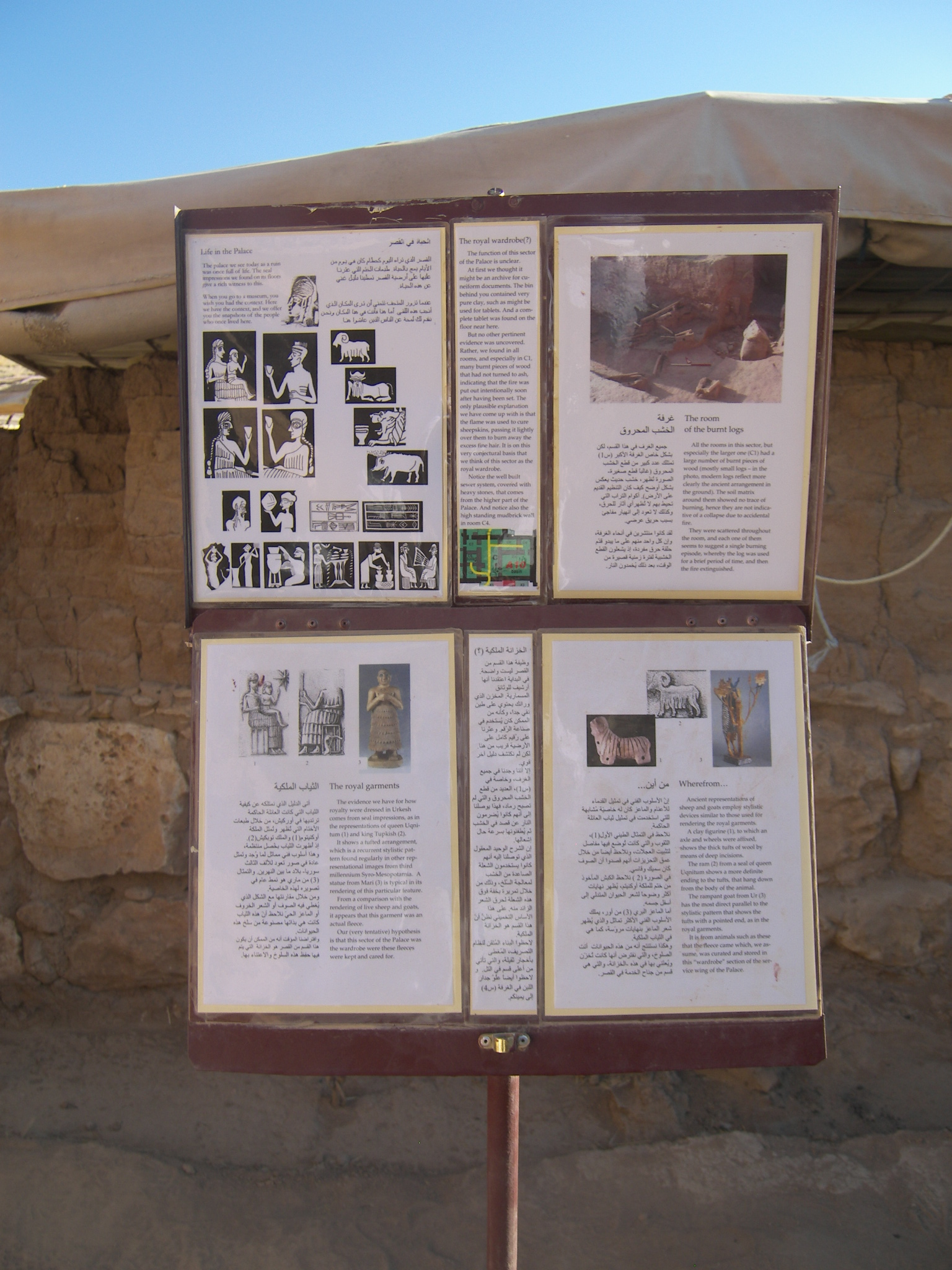Signpost (PDF 161K)
The service wing of the Palace is the largest self-contained structure through which visitors can walk. Thus here one will find the largest number of stands.


Back to top
Entering through a breach
(PDF 93K)
Sector A of the service wing of the Palace is the only one that was seriously damaged. Some of the walls are completely eroded, down to the foundations, and of the others there is little more than the foundations.
In 2009 I decided to reconstruct the walls for which not even the foundations were extant, and to cover the others with a metal trellis, but without the side cloth panels. Work was completed just before we left at the end of the season, so there was only time for a short notice, posted as a single panel.

Back to top
The royal wardrobe (?) (PDF 623K)
The function of this first sector we enter is unknown although an intriguing hypothesis can be considered...


Back to top
The royal kitchen (PDF 900K)
The kitchen is the best preserved sector of the service wing of the Palace. The person in charge was a woman, and this gives us an opportunity to look at some interesting evidence concerning women at Urkesh.


Back to top
The Palace as seat of power
(PDF 869K)
Sector B was a large storage area, where the king, the queen and their courtiers stored their goods. It is a good place to review what the impressions on the sealings that were affixed to these goods tell us about the this ruling elite.


Back to top
Finding objects (PDF 683K)
Most of the objects found in the service wing of the Palace are small and fragile. Special techniques help the excavators in their task.


Back to top
A control room (PDF 552K)
The good conservation of the Palace architecture allows us to understand in somedetail the paterns of circulation that presided its planning. As one walks thrgouh the rooms, one can appreciate the scope of this plan.


Back to top
A study in foundations (PDF 92K)
Sector A is the only one where we lack most of the floors, and only have the lower most courses of the stone walls. This offers a good opportunity to look at details of the wall foundations.

